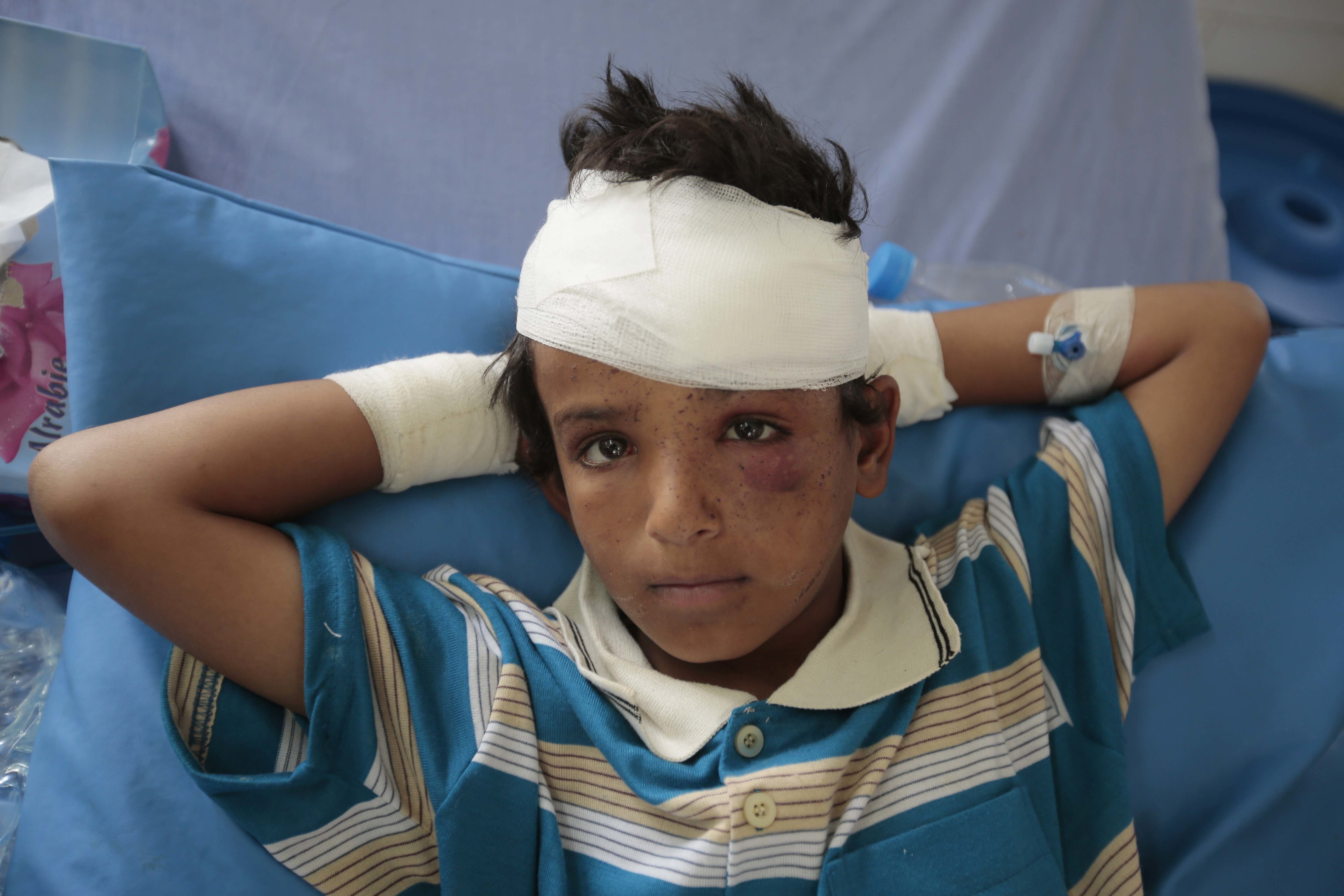
THERE have been 366 alleged war crimes in Yemen but only 79 investigations by the Saudi-led coalition, we can reveal.
Meanwhile, the Ministry of Defence has conducted no inquiries of its own despite the UK backing the coalition’s strikes on the shattered country.
British civil servants admit they do not know how many investigations into alleged war crimes are still ongoing or whether any incidents involved smart bombs part-built in Scotland.
Since Yemen’s war escalated in 2015, the Saudi-led coalition has been accused of targeting schools, hospitals and civilian areas with airstrikes, prompting international condemnation.
Observers report air raids have intensified this month with 62% of the 42 raids monitored by the Yemen Data Project said to have hit civilian targets.
The MoD said the number of alleged violations of international humanitarian law listed on an official database was 381.
Of these, 15 were duplicate entries, which means some alleged incidents were recorded on more than one occasion.
They also said they do not have access to all the information required to assess whether war crimes have been committed, pointing out that investigations are conducted by the Saudi-led coalition’s Joint Incident Assessment Team (JIAT).
The SNP’s Westminster leader Ian Blackford MP said the Saudi-led coalition’s assessment team “does not carry any legitimacy”.
He added: “These revelations of hundreds of alleged violations of international humanitarian law in Yemen is incredibly concerning. It is even more worrying that the MoD is unaware of how many have been have been investigated.
“There must be a full and independent UN-led investigation into all violations in the conflict to ensure all sides are held to account. The UK Government is not a mere bystander in the war, it is an active player.
“Despite the mounting evidence of breaches in international law, the UK Government is still content on looking the other way, whilst simultaneously supplying arms and military advice to the Saudi government. The sale of arms to the Saudis must end now.”
Oliver Sprague, Amnesty International UK’s arms expert, said: “These figures make an absolute mockery of the government’s claim that the UK has a ‘robust’ system for exporting arms.
“With the MoD not even trying to investigate coalition airstrikes and the UK relying on implausible Saudi assurances and the coalition’s deeply-flawed investigations, it’s clear that ministers have no reasonable means of assessing the risk that UK arms exported to Saudi Arabia will end up killing civilians in Yemen.”
The UK Government has faced criticism and legal challenges over its arms sales to Saudi Arabia but ministers have defended lucrative contracts with the Saudis by insisting it has “one of the most robust export control regimes in the world”.
The Department of International Trade, which sanctions export licences for arms sales, has repeatedly said that “risks around human rights abuses are a key part of its licensing assessment”.
“We do not know how many investigations the JIAT are conducting,” the MoD said.
For three years, the Saudi-led coalition, backed by the UK and other allies, has waged war against Houthi rebels in support of the Yemeni government.
More than 10,000 people have died while the country faces widespread famine.
There have been a number of attacks on civilians, including the bombing in August of a school bus when 40 children died.
Under international pressure, the Saudis admitted the attack was unjustified and promised to hold those responsible to account.
A damning report by Human Rights Watch in August accused the JIAT of failing to “provide credible, impartial, and transparent investigations into alleged coalition laws-of-war violations”.
Others, including the UN Panel of Experts, Amnesty International and Médecins Sans Frontières (Doctors Without Borders), have reached similar conclusions about JIAT’s failings.
Scottish Labour MP for Glasgow North East and Shadow Scotland Minister Paul Sweeney said: “It is increasingly clear the UK Government views lives in Yemen as expendable. I intend to raise further questions of ministers in Parliament.”
Ross Greer MSP, international relations spokesperson for the Scottish Greens, said: “That the overwhelming majority of their suspected crimes are not even being investigated has not slowed the UK Government down in continuing the supply of arms, as well as logistical and political support for the Saudi regime.
“It’s time the arms sales end, the political support ceases and the sanctions begin. Otherwise the government’s rhetoric around human rights will be revealed as appalling hypocrisy.”
Oxfam said: “All parties to the conflict have committed serious abuses of international humanitarian law.
“No-one should be supplying arms that could be used in a conflict which is causing such misery to Yemen’s people. This includes the UK Government which has a legal duty to refuse the transfer of arms where a clear risk exists that they might be used in the violation of international humanitarian law.”
The Department of International Trade said: “The government takes its export responsibilities very seriously operating one of the most robust export control regimes in the world.
“Risks around human rights abuses are a key part of our licensing assessment and the government will not license the export of items where to do so would be inconsistent with any provision of the Consolidated EU and National Arms Export Licensing Criteria.”

Enjoy the convenience of having The Sunday Post delivered as a digital ePaper straight to your smartphone, tablet or computer.
Subscribe for only £5.49 a month and enjoy all the benefits of the printed paper as a digital replica.
Subscribe